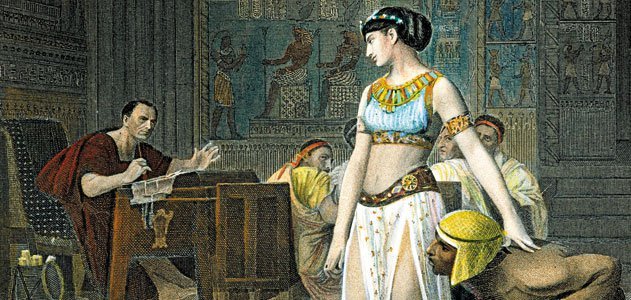The general view of Cleopatra, presented in an ancient Roman text and popularized in modern media, is that of a temptress
Cleopatra VII (69 – 30 BC) was the queen of the Ptolemaic kingdom of Egypt and its last acting ruler.
Known for her love affairs with Mark Antony and Julius Caesar, Cleopatra is often described as a seductress, forged her position in the beds of powerful men.
Cleopatra, however, was a powerful ruler, but historical accounts have discredited her, downplayed her success, and greatly exaggerated her indiscretion. The general view of Cleopatra, presented in an ancient Roman text and popularized in the modern media, is that of a temptress who uses her sexual talents to gain political advantage.
What these ancient tales fail to mention is that she was in fact one of the greatest intellectuals of her time. She was trained by leading scholars from the Hellenistic world and studied at the Museum Training Center in Alexandria, where the famous Library of Alexandria was located. There she studied geography, history, astronomy, philosophy, international diplomacy, mathematics, alchemy, medicine, zoology and economics.
Cleopatra is the only member of her dynasty who speaks ancient Egyptian and reads hieroglyphs. She also knew ancient Greek and the languages of the Parthians, Jews, Medes, Three-Year-Olds, Syrians, Ethiopians and Arabs.
It is known that Cleopatra VII wrote several works related to herbs and cosmetology. Unfortunately, all her books were lost in the fire of 391 AD, when the Great Library of Alexandria was destroyed. The famous doctor Galen studied her works and managed to rewrite several recipes created by her. One of the medicines he also offers to his patients is a special cream that helps men get their hair back.
Its influence on science and medicine has been well known since the first centuries of Christianity.
After the death of Cleopatra, Egypt became a province of the Roman Empire.
Source: Ancient Origins









